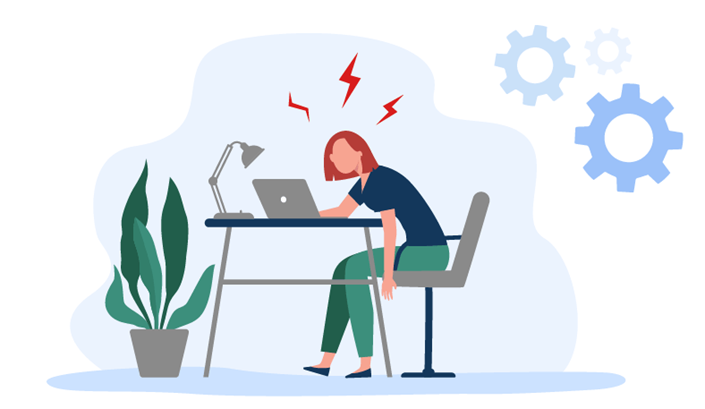MenuClose
Is your business a mentally healthy place to work?
Did you know you were obligated under NSW legislation to take responsibility for psychosocial risks?
In this guest post, Harry Parker from AusPsych shares his insights on your requirements regarding psychosocial risk and mental stress in the workplace and the benefits of Employee Assistance Programs (EAPs).

In 2022, The NSW state government enacted legislation that requires employers to take similar responsibility for the psychological safety of staff as they do for physical harm and safety.
While many employers have been actively contributing to workplace wellbeing through various programs, the amended Work Health and Safety Regulations prescribe how duty holders must identify and manage hazards and risks to workers' psychological health and safety.
While there were only 8.5 claims for mental stress out of 10,000 employees in 2018, compared to 192 claims for physical injury, these claims took 15 times longer to resolve and cost approximately 8 times more than regular workers compensation claims.
Safe Work Australia's figures for 2021 indicate that the number of mental health claims increased to 9.3%.

Mental distress is a part of life.
Nearly everyone will deal with depression and anxiety at some time in their life, but for most, it's passing. Almost one in five people will be affected over the long term, some battling with symptoms for a significant part of their lives.
The impact of work and work environments on mental wellbeing has gradually emerged over the last fifty years of research. Far from being minor issues, problems at work can dramatically impact wellbeing.
Research on bullying and harassment, for example, has shown that the biggest single impact comes from 'the shared belief held by workers that their psychological safety and wellbeing is (or is not) protected and supported by senior management'.
Work Health and Safety regulations outline the main psychosocial risks and psychosocial hazards at work. These include:
Unfortunately, managing these hazards isn't as straightforward as guarding a machine, installing fixed fall protection or implementing a traffic control plan.
However, while these requirements look challenging, they also provide a structure for your organisation, managers and supervisors to apply sensible policies, approaches and actions to take care of your staff's wellbeing.
It's one thing to believe in a good idea, but it's a lot easier to implement it when you're required to. As US President Roosevelt said, "You've convinced me. Now go out and make me do it!"
The list of hazards above can be broken into three main areas:
Job design – Job demands, poor sense of control by staff, role clarity, remote or isolated work, poor physical environment, poor organisational change
Behaviour and culture – Violence and aggression, bullying, harassment, including sexual harassment and conflict or poor workplace relationships and interactions
Proactive management – Adequate reward and recognition, organisational justice (perceived fairness), preparation, training and responsiveness to traumatic events or material
Ultimately, these regulations require us to embrace a systematic approach to caring about the psychological wellbeing of staff. Some of the questions we can ask ourselves are:
Related: Achieving small business owner wellbeing (data-led advice)

As well as changing policies and approaches to reduce psychosocial hazards and psychological harm in your workplace, Employee Assistance Programs (EAPs) are a great investment.
EAPs help you in managing psychosocial risks by giving employees easy access to a qualified psychologist with a guaranteed appointment. This provides your organisation with a happier, less stressed and less anxious workforce. It also means increased productivity, retention and work satisfaction.
A truly effective EAP provides services and programs that support your organisation in building the resilience, strength, and confidence of your managers and employees.
In building employee resilience to develop skills and insights that promote self-reliance in recognising issues and identifying effective solutions and strategies, you can work proactively and provide best-practice staff management policies and procedures.
Overall, EAPs can positively benefit your organisation in terms of productivity, attendance, and morale—and help ensure you're meeting your obligations.
For further information on EAPs for your organisation, please contact AusPsych directly on 02 4926 1688 or send an email to admin@auspsych.com.au
AusPsych is an Australian privately-owned psychology practice providing a range of psychological services, including tailored EAPs. Their highly talented and qualified staff are passionate and genuine about helping clients build mentally healthy workplaces. They have offices in Newcastle, Lake Macquarie, the Hunter and Upper Hunter regions, plus Associate offices throughout regional NSW, Sydney and beyond.
02 4926 1688 | Visit website
